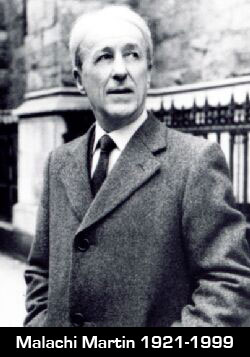Holy Communion for Adulterers
Bishop Busca approves of Holy Communion for Adulterers

Bishop Busca approves of Holy Communion for Adulterers
That’s what Amoris Laetitia is all about – approval of mortal sin.
ROME, December 12, 2018 (LifeSiteNews) — The doctrinal dispute over Amoris Laetitia is
in the air again this Advent, as one Italian bishop is inviting
divorced and civilly remarried Catholics to begin an “ecclesial journey”
that he says will lead, in some cases, to access to the sacraments of
Penance and the Holy Eucharist.In an Advent letter to the faithful of his diocese, Bishop Gianmarco Busca of the northern Italian diocese of Mantua has said “the faithful who are divorced and remarried, or who live stably in a second relationship, can embark on an ecclesial journey of reconciliation which, in some cases, can lead to the possibility of gaining access to the sacrament of Penance and Eucharistic Communion.”
The city of Mantua is traditionally hailed as the birthplace of the great pagan poet Virgil, who authored the Aeneid and served as Dante’s guide through hell and purgatory to the threshold of heaven in the Divine Comedy.
In his Nov. 30 letter, the Mantuan Bishop adds that “the diocesan guidelines for this journey are contained in a small document that is already available in all parishes.” The new directives (detailed below) avoid the question of whether Holy Communion will be given to couples engaging in sexual relations outside a valid sacramental marriage, and the bishop declined to clarfiy when asked by LifeSite.
Presenting the Mantuan directives
The new directives are contained in a two-page pamphet, dated Sept. 8, and are titled: ‘Marriage and Ecclesial Paths of Reconciliation: diocesan directives for a fuller integration of divorced and remarried faithful into the ecclesial community.’Bishop Busca presents the new initiative as the fruit of Pope Francis’ 2016 post-synodal apostolic exhortation on the family, Amoris Laetitia (AL).
Appointed by Francis in June 2016, Busca says the Pope “takes a broad view of family pastoral ministry” and “envisages a variety of paths” in Amoris Laetitia. He adds that “the doctrine and tradition on marriage” in AL are “re-read through a ‘pastoral’ lens, that is, with a view to their organic development along the Church’s journey.”
According to the Mantuan bishop, “the ‘novelties’ contained in Amoris Laetitia do not come from a break with tradition and the teaching of the Magisterium.” Nevertheless, he adds, “as the Pope points out, ‘this does not preclude various ways of interpreting some aspects of that teaching or drawing certain consequences from it’ (AL n. 3).”
Discernment and mercy
In keeping with Amoris, Bishop Busca tells the faithful of his diocese that the new directives ought to be read in light of the two “key criteria” of “discernment and mercy.”Discernment, he said, means considering the experiences of people and couples “on a case-by-case basis.”
“No immediate and general rule is given, which is valid for any cultural context and applicable to every situation, that can relieve us of the duty of carrying out, under the guidance of the Spirit, a prudent and personalized discernment,” he explains.
The Mantuan bishop tells the faithful of his diocese:
Amoris Laetitia implements the proposal of the 2015 Synod in which the [synod] fathers gave their consent to the assessment, on a case by case basis, by the priest ‘in the internal forum’ (i.e. in dialogue with the conscience of each individual person) about the possibility of admitting to Eucharistic Communion, after Confession, remarried divorcees who are rightly disposed.Quoting Pope Francis, and relying on AL’s controversial footnote 351, Busca says:
The Pope agrees, in fact, that “it is can no longer simply be said that all those in any ‘irregular’ situation are living in a state of mortal sin and are deprived of sanctifying grace” (n. 301). The criterion of discernment leads us to understand what help the Church can give these faithful to ‘grow in the life of grace and charity’ (n. 305). ‘In certain cases’ — footnote n. 351 specifies — the help could also include ‘the Sacraments.’”Regarding mercy, Busca continues:
Pope Francis “invites us not to present a ‘far too abstract and almost artificial theological ideal of marriage,’ with an ‘excessive idealization’ that is ‘far removed from the concrete situations and practical possibilities of real families’ (n. 36). And he reaffirms that ‘for a long time’ there was an insistence on ‘doctrinal, bioethical and moral issues, without encouraging openness to grace’ (n. 37).”Citing Amoris Laetitia, Busca says the Gospel calls us to avoid “judgments that are ‘unduly harsh or hasty’ (AL n. 308), to act not as ‘arbiters of grace’ but as ‘facilitators’ (AL n. 310) of the encounter between God the Father and his creature who does not exist as an ‘ideal being’ but as a historical, concrete man.”
Amoris Laetitia, he says, “opens the door to a positive, welcoming pastoral ministry, which makes possible a gradual approach to the demands of the Gospel, taking into account the key criterion of discernment which ‘must help to find possible ways of responding to God and growing in the midst of limits’ (n. 305).”
..
https://biblefalseprophet.com/2018/12/16/bishop-busca-approves-of-holy-communion-for-adulterers/

Commenti
Posta un commento